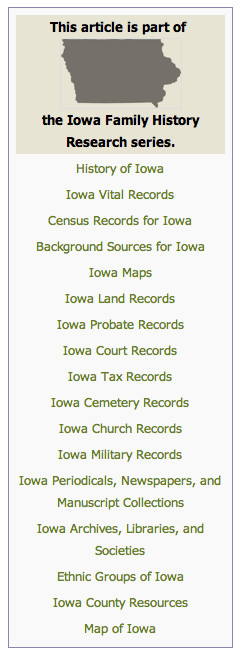'Red Book' is free online and will ease research in U.S. states and counties
If you’ve researched in a state far from home, you know how annoying it can be (and expensive if you have to send $24 or more every time you want a vital record mailed to you. And, expenses …
This item is available in full to subscribers.
Please log in to continue |
Register to post eventsIf you'd like to post an event to our calendar, you can create a free account by clicking here. Note that free accounts do not have access to our subscriber-only content. |
Day pass subscribers
Are you a day pass subscriber who needs to log in? Click here to continue.
'Red Book' is free online and will ease research in U.S. states and counties
If you’ve researched in a state far from home, you know how annoying it can be (and expensive if you have to send $24 or more every time you want a vital record mailed to you.
And, expenses aside, researching state by state can be frustrating, because these United States grew up over a long period of time. Each state began keeping vital records and probate, land and court records at different times and might store them in different places.
You don’t want to spend time searching for a record that doesn’t exist (or in the state next door or adjacent county because the lines changed over time).
How do you find out if the records go back as far as you want and in which county you should be searching? Did the state you want have state or territorial censuses? What kind of historical periodicals and newspapers might be available? Is there a historical society or genealogical society with good resources online?
The famous “Red Book: American State, County and Town Sources” was the go-to place to check out a state when I started searching for genealogical treasure years ago. For each state, it features vital records, census records, Internet and county resources, land, probate, court and tax records, cemetery and church records, military records; periodicals, newspaper and manuscript collections; and archives, libraries and societies. And, there are county, town and parish maps.
Well, it’s still around. But, you can access the information for free at Ancestry’s wiki. This is the third edition, which was published in 2004. On the wiki, go to the “Red Book” and then choose a state.
I have one lone family that lived in Iowa in the late 1800s, so I went to the Iowa page. There was interesting information on the history of the state. From 1671 to 1689, it was claimed for France, who ceded it to Spain in 1762. Who knew? It became U.S. territory in the Louisiana Purchase. Before statehood in 1846, it was included in the Michigan Territory and Wisconsin Territory. It became the Iowa Territory in 1838.
Then, there’s a box, like the one on this page. Each topic is a link to a description and other links to where you can find the records.
There is a description of the manuscripts available at the state historical society and the state archives in Des Moines, along with addresses, websites and descriptions for those repositories, genealogical societies and libraries with pertinent material.
A perfect example of this locally is the mish-mash of towns along the Rhode Island and Massachusetts borders. Parts of Barrington and Warren were once part of Massachusetts and Rhode Island.
Nat Taylor, the Barrington Preservation Society president, did some research on Barrington, Mass., which existed for 30 years, from 1717 (when it split off from Swansea) to 1747, when a royal commission under King George II redrew the colony line and suddenly most of Barrington, Mass., was in Rhode Island.
It joined with the part of Swansea that had also shifted to Rhode Island to make up a new town, called Warren. Then, in 1770, Warren split in half, and that part of Barrington, Mass., was reincorporated in Rhode Island with the earlier name, Barrington. And Barrington, Mass., had been bigger, including much of Riverside (now in East Providence) and Barneyville (now in Swansea).
A look at how the records would be found can be seen through the case of Matthew Allin, a leading citizen of Barrington. He was born in Swansea (Mass.) in 1697, married in Barrington (Mass.) in 1726, and died in Warren (R.I.) in 1761, but all these events took place on the same family farm in what is now West Barrington. He is buried in his cemetery on Bay Spring Avenue, which used to be part of his farm.
Lynda Rego has a Facebook page at www.facebook.com/lynda.rego where she shares tips on genealogy and other topics. Stop by, click on Like and share any interests you have for upcoming columns.






